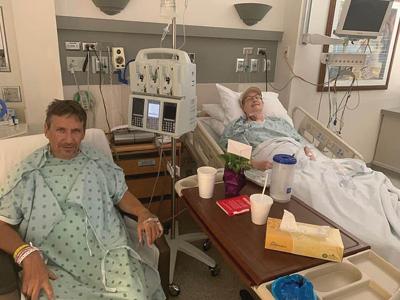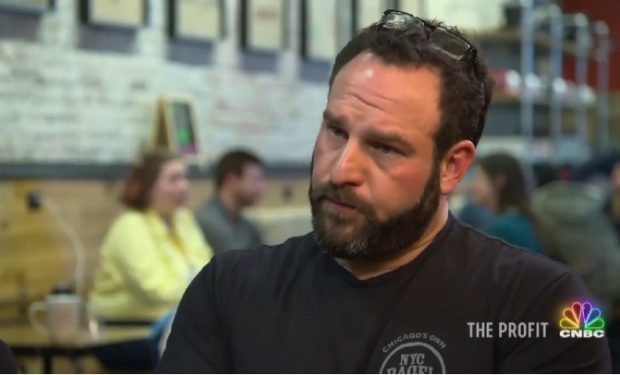From The Pharma Letter
Australia to list Jinarc on PBS
The Australian government will list a new medicine for adults with genetic kidney disease on the Pharmaceutical Benefits Scheme (PBS), saving patients around A$23,000 ($16,428) a year.
Jinarc (tolvaptan), which was developed and is marketed by Japanese drugmaker Otsuka Pharmaceutical’s (TYO: 4768), will be available through the PBS from January 1, 2019. It is the first effective drug treatment for autosomal dominant polycystic kidney disease (ADPKD) on the PBS.
The disease is a genetic, progressive and painful disease in which cysts develop and grow in the kidneys. Most people with this disease will need dialysis or a transplant by the time they are 60. There are also multiple complications from the disease, which may include hypertension, chronic and acute pain, repeated urinary tract infections, and depression as the cysts grow and quality of life declines.
The PBS listing of Jinarc provides new hope to people diagnosed with this disease that they may be able to have a better quality of life, with potential for improvement for their kidney and overall health.
Around 900 patients each year are expected to benefit from the listing. Instead of A$23,600 per year they will be able to obtain this innovative new medicine for just A$40.30 per script, or A$6.50 for concessional patients. While 10,000 Australians are estimated to have the disease, most are not diagnosed until the disease is advanced.
Gift of Life
From Time Magazine, By MELISSA LOCKER
How a Starbucks Barista Helped a Customer Find a New Kidney
Sometimes a Starbucks barista has something to more offer than a Frappuccinoand a smile.
Nicole McNeil, a barista at the DuPont, Wash., Starbucks knew something was going on with long-time customer Vince Villano when he seemed down during his trips to her store..
So she she sat down with him and asked him what was wrong, KIRO-TV reports. Turns out, Villano, an Army veteran, needed a new kidney. He was suffering from polycystic kidney disease – his kidneys were only functioning at about 4% – and he was facing a life on dialysis. The debilitating condition has no treatment and the only option is a kidney transplant.
The story stuck with McNeil, who went home and shared the heart-breaking tale with her husband, Justin McNeil. The story struck a chord with Justin, too, and he ultimately decided to donate a kidney to Villano. “I said, ‘I’ve got a kidney, you know, we could do this. I think I’m willing to do that,’” Justin McNeil told KIRO. “It didn’t take long.”
The couple gave Villano the news and as they embarked on the long journey of medical testing to confirm the donation would work, the three struck up a close friendship. Villano and Justin McNeil, who is also an Army veteran, spent months traveling back and forth from DuPont, which is between Olympia and Tacoma in Washington State, to the University of Washington Medical Center in Seattle.
“In general, having them as friends, family, I wouldn’t want it to not be this way. I can’t imagine not having them in my life,” Villano told KIRO.
Both Villano and Justin McNeil had their surgeries on Wednesday and, according to an update posted by Starbucks, “The doctors told [Nicole McNeil] the kidney Justin McNeil donated to Villano looks great, and a post-surgery ultrasound confirmed it is functioning well.”
Relationship between caffeine intake and autosomal dominant polycystic kidney disease progression: a retrospective analysis using the CRISP cohort
Abstract
Background
Caffeine has been proposed, based on in vitro cultured cell studies, to accelerate progression of autosomal dominant polycystic kidney disease (ADPKD) by increasing kidney size. Since ADPKD patients are advised to minimize caffeine intake, we investigated the effect of caffeine on disease progression in the Consortium for Radiologic Imaging Studies of Polycystic Kidney Disease (CRISP), a prospective, observational cohort study.
Methods
Our study included 239 patients (mean age = 32.3 ± 8.9 ys; 188 caffeine consumers) with a median follow-up time of 12.5 years. Caffeine intake reported at baseline was dichotomized (any vs. none). Linear mixed models, unadjusted and adjusted for age, race, sex, BMI, smoking, hypertension, genetics and time, were used to model height-adjusted total kidney volume (htTKV) and iothalamate clearance (mGFR). Cox proportional hazards models and Kaplan-Meier plots examined the effect of caffeine on time to ESRD or death.
Results
Caffeine-by-time was statistically significant when modeling ln(htTKV) in unadjusted and adjusted models (p < 0.01) indicating that caffeine consumers had slightly faster kidney growth (by 0.6% per year), but htTKV remained smaller from baseline throughout the study. Caffeine consumption was not associated with a difference in mGFR, or in the time to ESRD or death (p > 0.05). Moreover the results were similar when outcomes were modeled as a function of caffeine dose.
Conclusion
We conclude that caffeine does not have a significant detrimental effect on disease progression in ADPKD.
Jinarc (tolvaptan), which was developed and is marketed by Japanese drugmaker Otsuka Pharmaceutical’s (TYO: 4768), will be available through the PBS from January 1, 2019. It is the first effective drug treatment for autosomal dominant polycystic kidney disease (ADPKD) on the PBS.
The disease is a genetic, progressive and painful disease in which cysts develop and grow in the kidneys. Most people with this disease will need dialysis or a transplant by the time they are 60. There are also multiple complications from the disease, which may include hypertension, chronic and acute pain, repeated urinary tract infections, and depression as the cysts grow and quality of life declines.
The PBS listing of Jinarc provides new hope to people diagnosed with this disease that they may be able to have a better quality of life, with potential for improvement for their kidney and overall health.
Around 900 patients each year are expected to benefit from the listing. Instead of A$23,600 per year they will be able to obtain this innovative new medicine for just A$40.30 per script, or A$6.50 for concessional patients. While 10,000 Australians are estimated to have the disease, most are not diagnosed until the disease is advanced.
Gift of Life
From Time Magazine, By MELISSA LOCKER
How a Starbucks Barista Helped a Customer Find a New Kidney
Sometimes a Starbucks barista has something to more offer than a Frappuccinoand a smile.
Nicole McNeil, a barista at the DuPont, Wash., Starbucks knew something was going on with long-time customer Vince Villano when he seemed down during his trips to her store..
So she she sat down with him and asked him what was wrong, KIRO-TV reports. Turns out, Villano, an Army veteran, needed a new kidney. He was suffering from polycystic kidney disease – his kidneys were only functioning at about 4% – and he was facing a life on dialysis. The debilitating condition has no treatment and the only option is a kidney transplant.
The story stuck with McNeil, who went home and shared the heart-breaking tale with her husband, Justin McNeil. The story struck a chord with Justin, too, and he ultimately decided to donate a kidney to Villano. “I said, ‘I’ve got a kidney, you know, we could do this. I think I’m willing to do that,’” Justin McNeil told KIRO. “It didn’t take long.”
The couple gave Villano the news and as they embarked on the long journey of medical testing to confirm the donation would work, the three struck up a close friendship. Villano and Justin McNeil, who is also an Army veteran, spent months traveling back and forth from DuPont, which is between Olympia and Tacoma in Washington State, to the University of Washington Medical Center in Seattle.
“In general, having them as friends, family, I wouldn’t want it to not be this way. I can’t imagine not having them in my life,” Villano told KIRO.
Both Villano and Justin McNeil had their surgeries on Wednesday and, according to an update posted by Starbucks, “The doctors told [Nicole McNeil] the kidney Justin McNeil donated to Villano looks great, and a post-surgery ultrasound confirmed it is functioning well.”
Living with PKD
From BMC Nephrology
Abstract
Background
Caffeine has been proposed, based on in vitro cultured cell studies, to accelerate progression of autosomal dominant polycystic kidney disease (ADPKD) by increasing kidney size. Since ADPKD patients are advised to minimize caffeine intake, we investigated the effect of caffeine on disease progression in the Consortium for Radiologic Imaging Studies of Polycystic Kidney Disease (CRISP), a prospective, observational cohort study.
Methods
Our study included 239 patients (mean age = 32.3 ± 8.9 ys; 188 caffeine consumers) with a median follow-up time of 12.5 years. Caffeine intake reported at baseline was dichotomized (any vs. none). Linear mixed models, unadjusted and adjusted for age, race, sex, BMI, smoking, hypertension, genetics and time, were used to model height-adjusted total kidney volume (htTKV) and iothalamate clearance (mGFR). Cox proportional hazards models and Kaplan-Meier plots examined the effect of caffeine on time to ESRD or death.
Results
Caffeine-by-time was statistically significant when modeling ln(htTKV) in unadjusted and adjusted models (p < 0.01) indicating that caffeine consumers had slightly faster kidney growth (by 0.6% per year), but htTKV remained smaller from baseline throughout the study. Caffeine consumption was not associated with a difference in mGFR, or in the time to ESRD or death (p > 0.05). Moreover the results were similar when outcomes were modeled as a function of caffeine dose.
Conclusion
We conclude that caffeine does not have a significant detrimental effect on disease progression in ADPKD.

